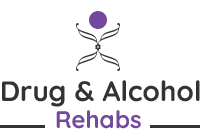Addiction Interventions Guide
WRITTEN BY CAYLA CLARK, BA – APRIL 14TH, 2020
What is an Addiction Intervention?
An intervention is a professionally orchestrated attempt to convince someone who is struggling with alcoholism or drug addiction that addiction treatment is necessary. Those who are in the midst of active addiction very rarely admit that they need professional help, seeing as addiction is a disease of denial and defensiveness.
Chances are, despite how serious the symptoms of the addiction have become, your loved one is unwilling to seek help. Attempting to stage an intervention yourself can make matters worse – your addicted loved one might leave the scene if he or she feels personally attacked, or cut you out of his or her life completely.

Search For A Rehab Center Near You
Are Interventions a Good Idea?
To prevent pushing your loved one farther away, it is important that you always seek the guidance of a professional interventionist. The interventionist will guide you through the entire intervention process, from start to finish, offering you the guidance and ongoing support you need in order to successfully set and maintain constructive boundaries.
You may want to grab your loved one by the shoulders and scream, “What are you doing! You’re ruining your life!” It’s important to remember that those who are in the throes of addiction rarely understand the serious negative impact that their actions have on themselves and others. Staging a professional intervention is always the best and most effective course of action.
The National Center for Biotechnology Information published a manual entitled Treatment Improvement Protocols, which details the importance of professional interventions in the case of substance abuse and dependency. The second chapter of the manual focuses on the role of interventions in substance abuse treatment, and an excerpt reads, “brief interventions to change substance abuse behaviors can involve a variety of approaches, ranging from unstructured counseling and feedback to formal structured therapy (Chick et al., 1985). (1) (Fleming et al., 1997) (2). Brief interventions, as defined and discussed in this TIP are time limited, structured, and directed toward a specific goal.”
Benefits of an Intervention
- Get your loved one the help they deserve without judgement.
- Work hand-in-hand with an addiction professional.
- The best chance at getting your loved one to say "YES".
- All of the intervention planning is done by the interventionist.
- All aspects of the intervention are controlled and guided.
- Everyone gets an opportunity to speak and explain their side.
Planning an Intervention
An intervention is a carefully staged process that will include the close friends and family members of the individual in question, and will be carefully overseen by a licensed and experienced addiction specialist; someone who has staged interventions beforehand and has experienced success in getting people safely into addiction treatment. Before the intervention takes place, the interventionist will meet with those who will be participating (aside from the addict or alcoholic, of course), and go over the directions and guidelines. Participants will draft heartfelt and personal letters that will be read to the addict or alcoholic during the intervention.
These letters will be compassionate and non-accusatory; they won’t place blame on the addicted individual, but rather focus on personal concerns and personal beliefs regarding how treatment would be beneficial. The interventionist will also help participants set personal boundaries, and maintain these boundaries if the addict or alcoholic initially refuses to get help. Part of the role of the interventionist is to offer continuous support long after the intervention itself has taken place.
The steps involved in every successful intervention include:
- A preformulated treatment plan. It is crucial that you find an appropriate and reputable treatment center ahead of time, and set up all travel plans, etc. before the intervention takes place. There will be a very small window of opportunity if your loved one does agree to seek help, and it’s important that you take complete advantage of it.
- Presenting the letters, which will include very specific examples of self-destructive behavioral patterns and the impact that these patterns have on you directly. It is important to avoid being confrontational and coming from a place of anger. Rather than saying, “You’re a really bad drug addict, and I hate the way you act when you’re high,” say something like, “Your recent behaviors have concerned me. It makes me feel sad and distant from you when you say you will show up to my soccer games but never follow through.” Keep everything very specific, and never place blame.
- Setting clear-cut boundaries that will go into effect immediately if your loved one fails to accept help. “If you don’t accept the help we are offering you today, we will no longer let you live in this house, and we will cut off all financial support.” It is essential that these boundaries are upheld until help is finally sought.

Find an Addiction Interventionist
Finding the right interventionist is important – fortunately, we are available to help. For a list of interventionists in your area or to learn more about the process as a whole, please feel free to reach out to us today. We are willing and able to answer any and every question you may have.
Reputable addiction interventionists are standing by if you know where to look. By working with an addiction professional, you’ll make sure that your loved one has the best chance at a successful and long-term recovery. Don’t delay in reachnig out for help because every second is crucial when it comes to entering an addiction treatment program.
References
- Chick, J.; Lloyd, G.; and Crombie, E. Counseling problem drinkers in medical wards: A controlled study. British Medical Journal. 1985; 290:965-967
- Fleming, M.F.; Barry, K.L.; Manwell, L.B.; Johnson, K.; and London, R. Brief physician advice for problem drinkers: A randomized controlled trial in community-based primary care practices. JAMA. 1997;277(13):1039–1045.
